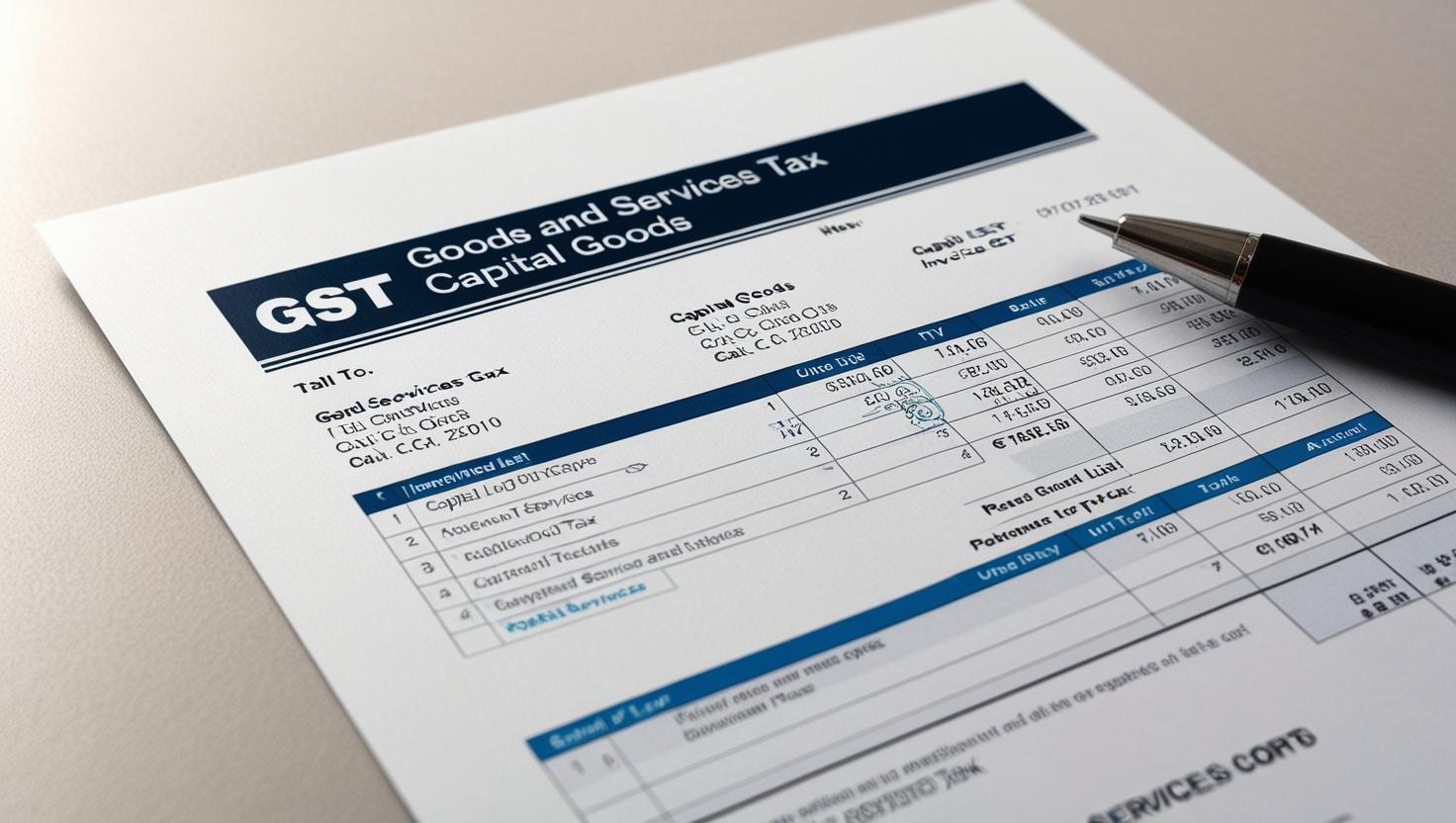Businesses use many capital goods for their operations. It is to be noted that tax paid on these capital goods can be availed as input tax credit.The word capital goods has been clarified in GST law. Capital goods refer to the goods, whose value is capitalized in the books of account of the person who is claiming the Input Tax Credit and which are purposefully used in the development of the business.

What are Capital Goods in GST?
In India, ‘capital goods’ under GST are defined in Section 2(19) of the Central Goods and Services Tax (CGST) Act. According to this definition, capital goods refer to items utilized or intended for use in the course or furtherance of business, with their value recorded as a capital asset in the taxpayer’s financial accounts. These goods play a significant role in input tax credit (ITC) eligibility, as they allow businesses to claim ITC based on their capital expenditure.
Difference between capital goods & other inputs
You are making a cake in your oven. You add ingredients such as eggs, water, flour, butter. These are your inputs. The cake is your final product. The oven is the capital good which helps you to make the cake. Inputs are consumed while making the final product and are treated as business expenses as cost of production.
Capital goods are not consumed when the final product is made. They are not consumed in a single year of production. Therefore, they cannot be entirely deducted as business expenses in the year of their purchase. Instead, they are depreciated over the course of their useful lives. The business recognises part of the cost each year through accounting techniques as depreciation, amortization and depletion.
ITC on Capital Goods
Businesses can claim Input Tax Credits (ITC) on capital goods used in the course of or furtherance of business under the Goods and Services Tax (GST) framework.
Eligibility for ITC on capital goods:
1. Registered GST Taxpayers: Only GST-registered taxpayers qualify for claiming Input Tax Credit (ITC) on capital goods.
2. Business Use Requirement: Capital goods must be employed strictly for business purposes, including manufacturing or providing taxable services.
3. Capitalization in Financial Records: The value of capital goods must be capitalized in the business’s financial accounts.
4. Taxable Goods or Services: Capital goods should contribute to the production of taxable goods or services, as ITC is not available for items used to supply exempted goods or services.”
Conditions and Restrictions for Claiming ITC on Capital Goods:
1. Exclusive Use for Taxable Supplies
Input Tax Credit (ITC) is allowed if capital goods are used exclusively for taxable supplies. For mixed-use (both taxable and exempt), ITC must be claimed proportionately.
2. Depreciation on Tax Component
ITC is ineligible if the tax component is included in the depreciation claimed under the Income Tax Act, as double benefits are not permitted.
3. Blocked Credit Items
ITC cannot be claimed on capital goods intended for personal use or those used for constructing immovable property (except for plant and machinery).
4. Time Limit for ITC Claims
ITC must be claimed by the due date of the September return following the financial year or by the date of filing the annual return, whichever is earlier.
5. Reversal of ITC
If capital goods are subsequently used for exempt supplies or non-business activities, a proportionate reversal of ITC is required.
6. Invoice Documentation Requirement
Valid tax invoices or appropriate documentation are essential to claim ITC on capital goods.
FAQs
Q1. What qualifies as capital goods under GST?
Capital goods under GST are defined as assets used or intended for use in business activities, which are capitalized in the taxpayer’s books of accounts. This includes machinery, equipment, and furniture used in the production of taxable goods or services.
Q2. What is credit on capital goods?
When you purchase anything, you are required to pay GST on it. Later, you can claim input tax credit on the GST paid on your purchases. Similarly, when you are purchasing any machinery for your factory, you will pay the applicable GST rate. This GST paid can be claimed as credit in the same way as inputs. However, if you claim depreciation on the GST paid while purchasing the capital asset, you cannot claim input tax credit.
Q3. Are there any restrictions on claiming ITC for capital goods?
Yes, ITC cannot be claimed if capital goods are used for personal purposes, for exempt sales, or if the tax component is included in depreciation claimed under the Income Tax Act.
Q4. Can depreciation affect the ability to claim ITC?
Yes, if the tax component of the capital goods is included in the depreciation claimed under the Income Tax Act, ITC cannot be claimed on that portion.
